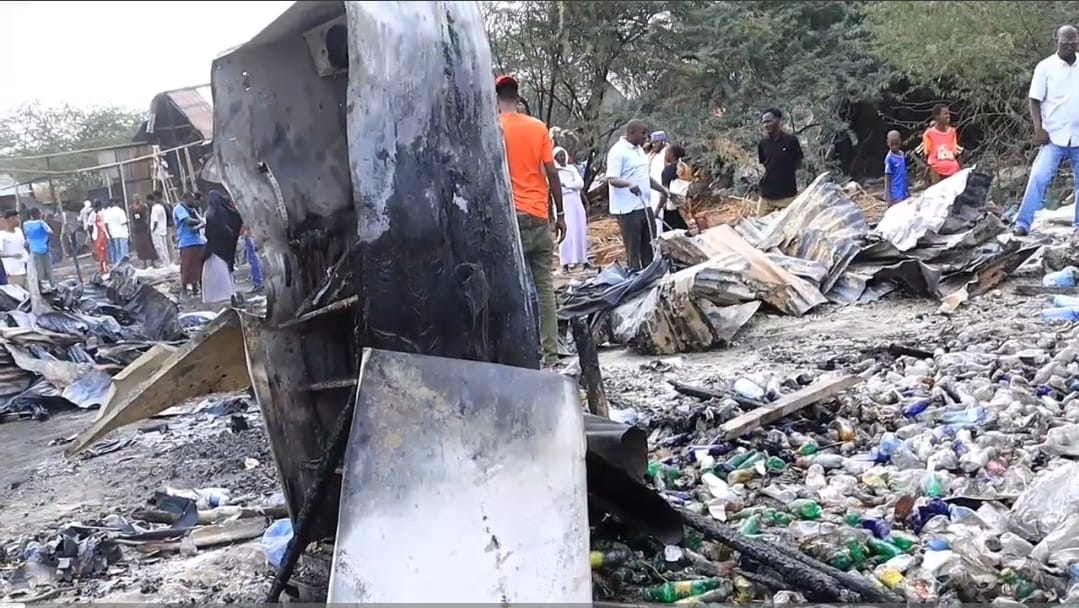Fire devastates market at Ifo Refugee Camp, leaving traders in despair

The inferno, which broke out late on Monday evening, swept through dozens of makeshift structures.
A massive fire has gutted a large section of the main market in Ifo refugee camp in northeastern Kenya, reducing stalls, goods, and livelihoods to ashes in a matter of hours.
The inferno, which broke out late on Monday evening, swept through dozens of makeshift structures constructed of timber, iron sheets, and tarpaulins, materials highly susceptible to fire.
Despite efforts by local residents and humanitarian workers to contain the flames, the blaze raged uncontrollably before eventually dying down past midnight.
“I lost everything,” said Amina Abdiaziz, a Somali trader who had operated a clothing stall in the market for over a decade.
“The fire moved so fast. We had no way to stop it. All I could do was run for safety,” she said.
Initial estimates suggest that at least 150 stalls were destroyed, dealing a devastating blow to the informal economy that sustains thousands of refugees in Ifo.
The camp is one of the sprawling settlements that make up the Dadaab refugee complex near the Kenya-Somalia border.
There were no immediate reports of fatalities, but several people were treated for smoke inhalation and minor burns.
The cause of the fire remains unknown, although traders believe it may have been triggered by an electrical fault or an overturned kerosene stove, both common in the densely packed market area.
Ifo, part of the decades-old Dadaab complex established in the early 1990s, hosts tens of thousands of mostly Somali refugees who fled conflict and famine in their homeland.
Over the years, makeshift markets like the one destroyed have become vital economic hubs, providing food, clothes, and essential supplies in a region long neglected by formal development.
Much of the camp is already facing chronic shortages of food, water, and medical supplies, the fire has only deepened the despair of a community already living on the margins.
“This tragedy underlines the urgent need to improve infrastructure in the refugee camps,” said Mohamed Salah, a businessman in the camp.
“We can’t keep waiting for disaster after disaster.”
